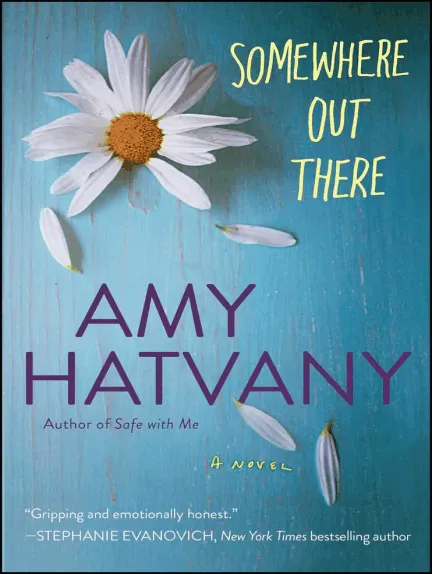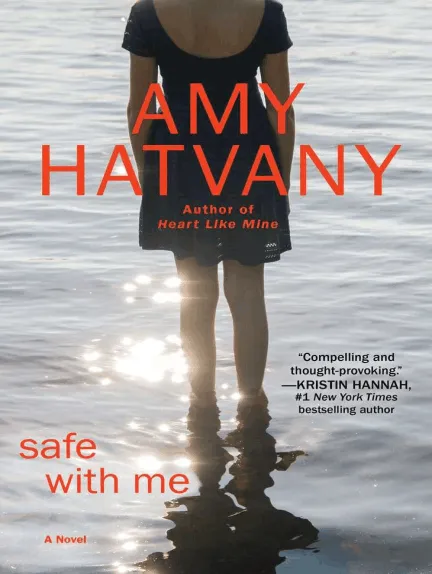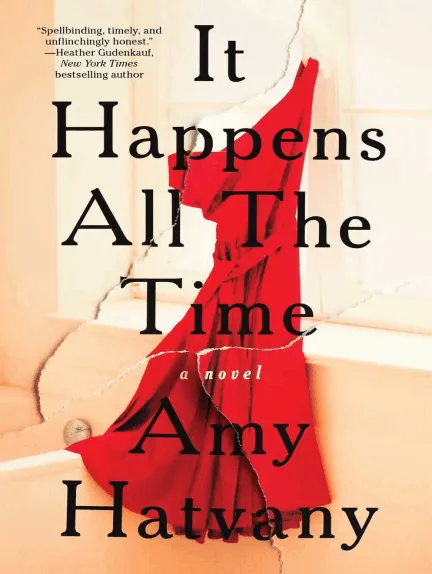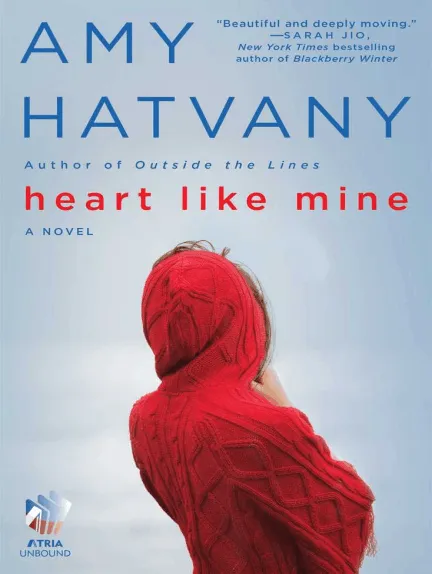I watched my father ascend the steps. He’s too skinny, I thought. The knots of his spine showed through the back of his shirt. He was becoming that word my science teacher taught us the week before. What was it again? Like a scorpion or a lobster? Next to math, science was my least favorite subject, so I had to rack my brain. Oh, that’s right. Exoskeletal. Maybe a man like my father needed to grow a hard protective shell. My mother always told me he was just a sensitive artist. He felt things deeper than most people. Maybe if he had a shell he wouldn’t hurt so much. I wondered if I could figure out how to grow one of my own.
I stood in the hallway, listening to my parents’ raised voices upstairs. I didn’t want to hear them arguing so I escaped to the kitchen. I’ll cook for him, I thought. I’ll make him something to eat and he’ll feel better. When he was sad, when he locked himself in the garage, he could go days without eating, something I just couldn’t understand. Even though I was skinny like my dad, I ate enough to feed an army, according to my mother. When money was tight, like I knew it was now, I tried to control how much I asked for, but it was hard. My father hadn’t sold a painting in a long time, so my mother’s job as the manager for an accountant’s office had to support us.
I wished I was old enough to get a job, other than pulling weeds for our neighbor, old Mrs. Worthington, and taking her dog for a walk. She only gave me a dollar a week and my mom made me put half of that in my bank account for college. I didn’t know how to tell her I wasn’t going to college. I didn’t like school very much to begin with.
“That’s okay, Bug,” my dad told me with a wink when I confessed to him how I felt. “You’re creative, like me. We don’t like being told what to do with our time.” There were even days that he would let me stay home with him after my mother had left for work. He’d call the school and tell them I was sick, asking for my homework assignments so I wouldn’t get too far behind. We cooked together, or took a long walk just to follow a particular cloud in the sky, always sure to get home before my mother did. Dad tried to be careful about not doing this too often, but at my last parent-teacher conference Mom was shocked when Mr. Pitcher told her how many absences I’d had that semester. My parents had a huge fight in the living room when we got home, too angry with each other to bother making me leave the room. I sat quietly, not wanting to make the situation worse by siding with either one of them.
“She needs to learn, David!” my mother yelled. Her usually pale skin was bright red. “She needs an education!”
“I’m giving her an education!” Dad bellowed in return. “I’m teaching her about the school of hard knocks. I’m teaching her the names of flowers and how a saffron thread feels as it melts on her tongue!”
“She won’t get a high school diploma for being well versed in the art of saffron.”
“I didn’t get a diploma,” my father retorted. “And you married me.”
“If I recall, that’s a little tidbit from your past you didn’t tell me about until after I married you.” She dropped onto the couch and my father towered over her. His eyes were wild.
“Oh, so you regret it now?”
My mother shook her head and sighed in response, but my father continued before she could speak. “Her grades are fine, Lydia. She’s not Einstein, but she’s passing. Who cares if she’s there every day? She’s not going to need to be an expert in American history when she’s running a kitchen.”
My father understood me. He knew I longed to be a chef. I wanted one of those tall, puffy white hats. And a jacket that had buttons marching up the front like soldiers. As soon as I was fifteen, I was going to get a job waiting on tables and have someone teach me how it all worked.
But at ten, the fanciest thing I knew how to make was macaroni and cheese from a box, so I got the water boiling and grated about a cup of extra cheese. The powdered stuff just didn’t add enough cheesy flavor, my dad said. He was the one who taught me that using half-and-half instead of the skim milk my mom kept in the refrigerator made all the difference in how creamy my sauce turned out. He was the one who said that as long as I was careful, ten was plenty old enough to learn how to operate the stove.
“Throw in a dash of garlic powder, too,” he said the first time he let me make the boxed pasta on my own, watching over me through every step. “And salt and pepper.”
“How much should I put in?” I asked him as I stirred the contents of the pot, careful to hold on to the handle firmly so the pot wouldn’t wobble off the burner.
“Just a pinch,” he said. “Start small, so you can add more if you have to. Taste everything, every step of the way. You can always add more, but if you put in too much right away, it’ll be ruined.” He tweaked my nose with a playful pinch. “Remember the artist’s rule: less is more.”
I smiled at him. “Less is more,” I repeated solemnly. I trusted him, even though part of me wasn’t sure if that was such a good idea anymore. My mother had cried that morning after he left. She went up to her room and shut the door. I knew better than to follow her. Instead, I did my best to clean up the kitchen from her pancake mess, wrapping the cooked ones in plastic and putting them in the freezer to throw in the toaster another morning.
I took a shower and brushed my teeth and hair, got dressed, and then found a good book to curl up with under a blanket. While I didn’t like most of my classes at school, I did love to read, always imagining myself as the heroine in a story. I thought being Anne Shirley, the spunky orphan in the Anne of Green Gables series, might be less stressful than dealing with my father’s moods. I identified with Frances Nolan in A Tree Grows in Brooklyn and her loving but turbulent relationship with her head-in-the-clouds father. But my most recent favorite was Are You There God? It’s Me, Margaret. I was positive I’d get my period any day.
It only took a couple of hours for my mother to emerge from her room. A shorter time than usual. I heard her door open and her footsteps as she walked across the hall to my room. I looked up at her from my spot on my bed and set the book down onto my lap.
“Hi, Momma.”
She smiled at me, but it didn’t quite reach her puffy, red-rimmed eyes. She looked like I did after Rachel Myers told me she didn’t want to be my best friend anymore. I had cried every day for a week. “Hi, baby,” my mom said. “You okay? Did you get some breakfast?”
I shrugged. “Not hungry.” She gave me a doubtful look. “No, really,” I said. “I wasn’t. I cleaned everything up, though. The bacon is in foil in the fridge and the pancakes are in the freezer.”
She came over and sat down on the edge of my bed, reaching out to cup my face in her palm. “How did you get to be such a good girl?”
I shrugged again. I didn’t think I was that good. If I were, wouldn’t my father want to be with me more? Wouldn’t he take his pills like he was supposed to so my mom wouldn’t get so mad at him?
“You’re worried about Daddy,” she said, and I nodded slowly.
“He’ll be okay,” she said, trying to reassure me, dropping her hand from my face and patting my leg. She didn’t sound like she believed her own words. I knew she was sad about how my dad was acting. She missed my old daddy—the one who made sure I got to my doctor appointments and sang her mushy love songs when she came home from work. I couldn’t remember the last time my mother had kissed him or shown him any other kind of affection. I had foggy memories of when I was a toddler, watching them dance together, hearing the sweet bubbles of her laughter float through the air.
She sighed and stood up. “I think I’m going to watch an old movie. Want to join me?”
I shook my head and held up my book.
“Okay,” she said. “Come down in a bit and I’ll fix us some lunch. Are sandwiches okay? I know you were supposed to go out for pizza . . .”
“It’s fine,” I said, not wanting to talk about my father’s outburst or the fact that he’d broken yet another promise to me with her. She went downstairs, and despite her offer of lunch, I stayed in my room, subsisting off the candy bar stash I kept in my closet. I couldn’t be around her when my father took off like he had. I could feel her anger and disappointment. I sensed it disconnecting her from him in a way that scared me. Don’t make him leave, I prayed, unsure if anyone or anything was actually listening. Don’t make my daddy go away. When I finally heard the familiar grumble of his car out front, I threw down my book and raced down the stairs.
Now, as I crumbled up the leftover bacon into the macaroni and cheese, I heard the water running in my parents’ bathroom above me. Next, I tore up lettuce over a bamboo salad bowl, poured in pre-shredded carrots, and added plump cherry tomatoes as a finishing touch.
I heard my father’s footsteps before I saw him. He had on jeans and a white T-shirt. I gave him a bright smile. “I hope you’re hungry!” I said, gesturing to the table I had just finished setting. “I made it just the way you like it. Where’s Mom?”
“She’s tired. She’s in bed.” He shuffled over to the table as he spoke. His hair was wet and plastered against his head. His eyes were so empty and sad I couldn’t stand to keep my gaze locked on his. I busied myself by scooping him up some salad and pasta onto a plate. He sat down, slowly, like an old person. Like my grandpa who was dead, but who used to give me a quarter to sing him a song when we visited him in the nursing home.
“I made it with extra cheese and bacon this time,” I said. “I thought you’d like that.”
“Thank you, honey,” he said, his voice cracked by tears. “I don’t deserve this.” He reached for a fork and held it for a moment but was shaking too hard to keep it in his grasp. It dropped to his plate and then the wood floor with a clatter. He let go of a shuddering sob.
I threw my arms around his neck and hugged him. “It’s okay, Daddy. I’ll get you another one.”
“I’m useless,” he cried. “Totally useless. I’m a terrible father. I’m a terrible painter. I should just leave . . . you’d be better off without me. Everyone would.” He shoved his face in his hands, making it awkward to keep him in my embrace. I could feel his tears drip down on my forearm. His pain bled into me, pushing through my skin. It made my stomach clench. He only used to cry once in a while; now it was happening all the time.
When he got like this he would crawl into bed for days. He wouldn’t shower or work or play with me. He wouldn’t paint or dance with my mother in the living room. I didn’t understand how he could be Bob Barker that morning and turn into this sad, broken man the same night. I didn’t understand why he just didn’t take his pills like he was supposed to so he wouldn’t do this anymore.
I didn’t understand why loving me wasn’t enough to make him want to stay.




















